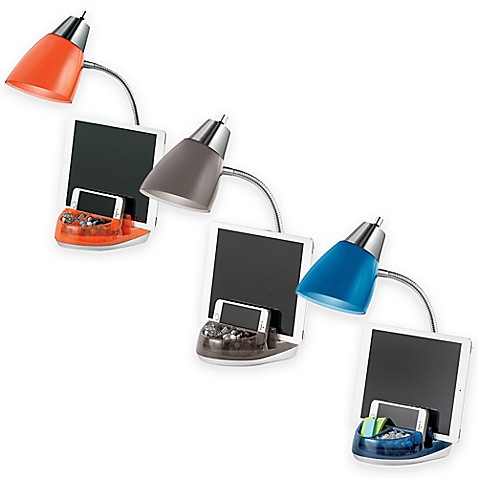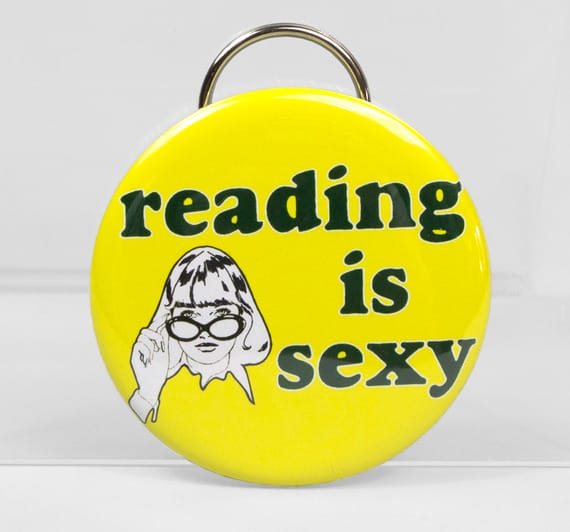It’s time to find the perfect gift for the writer in your life…but the only idea you can come up with is a pretty notebook.
As writers who have spent our whole lives getting notebooks under the tree, we’re here to tell you: you can do better!
The gift ideas for writers below range from the ridiculously silly (“Poe-pourri”, anyone?) to the wonderfully useful (fingerless writing gloves). Use one of these clever gifts to make your favorite writer laugh, or simply to show you understand just how much writing means to them.

Gift ideas for the writer in your life
We created this gift guide with holidays, birthdays and anniversaries in mind. Choose one of the thoughtful gifts below, and that special writer will know just how much you care.
Here are some of the best gifts for writers:
1. Fingerless writing gloves
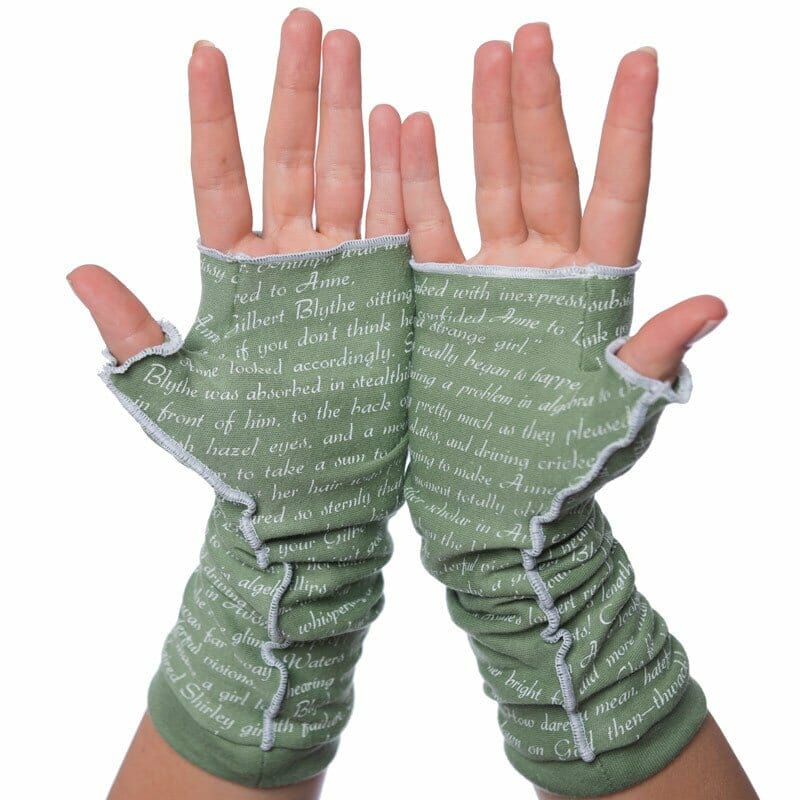
Photo credit: Storiarts
Know a writer who’s always cold in their home office?
Fingerless gloves could help them stay warm, while still allowing them to keep typing away.
Even better, we found pairs that are covered in text from classic novels. Storiarts fingerless gloves come in lots of colors and themes, including Les Miserables, Hamlet, Pride and Prejudice, and the Declaration of Independence.
Fashionable and practical, this is one of the best gifts for writers out there.
2. Adult coloring book for writers
Yup, adult coloring is totally a trend.
Studies have shown that coloring reduces anxiety, creates focus and helps people become more mindful. No wonder there’s an adult coloring book specifically for writers!
3. Domain name
Does your writer have their own website? If not, they probably have it on their list to start a blog this year.
Gift your writer with their very own domain name, giving them the boost they need to make their writing public or start blogging.
Bluehost makes it easy to grab the domain name of your choice, and most domains cost around $12/year. If you’re not sure which domain to buy, your writer’s first and last name is a good bet, like this: SusanSmith.com. If that’s not available, try SusanSmithWrites.com.
You can test out a few domain names here to see what’s available:
4. Books about writing
You can never go wrong with giving a writer a book, especially when the book is about writing. After all, most of us are self-proclaimed bookworms, and we’re eager to improve our craft.
Here are four books every writer should read more than once:
- Bird by Bird by Anne Lamott
- On Writing by Stephen King
- The Artist’s Way by Julia Cameron
- You Are a Writer by Jeff Goins
Want more to choose from? Here are 26 of the best books on writing.
5. Aqua Notes, the waterproof notepad
Know how you often get your best ideas in the shower?
Aqua Notes helps you capture them. This waterproof notepad, which mounts to the shower wall, allows you to document the greatest of ideas and grocery lists…or leave notes for whoever showers after you.

Photo credit: Amazon
6. Literary socks
Gone are the days when socks were a lame gift your ancient aunt gave you.
You could easily fill a whole dresser with the cool socks available these days. The writer in your life is sure to like:
- Jane Austen socks
- Banned Book socks
- Shakespeare socks
7. Clever coffee mug
Keep your writer caffeinated and amused with a clever coffee mug.

Photo credit: Amazon
We especially love this humorous one: “Please do not annoy the writer, she may put you in a book and kill you.”
If you’d like to give your favorite writer a boost of confidence, this one may do the trick: “I write. What’s your superpower?”
Finally, for the writer who is serious about getting down to business on Monday mornings, we recommend this “Write epic shit” mug.
8. Noise-canceling headphones
Shhhhh! Writer at work! While some writers prefer the energetic buzz of a coffee shop while they write, many writers crave peace and quiet.
Noise-canceling headphones can give the writer in your life the silence (and productivity) they need to put pen to paper. Bose has a number of options that range in price.
9. Literary jewelry
Know a stylish writer? Here are a few pieces they could add to any outfit:
- A necklace with a Jane Austen quote
- A bracelet that says “She is too fond of books and it has turned her brain.”
- Oscar Wilde cuff links
Whether your writer loves Austen, Shakespeare or Poe, the JezebelCharms Etsy shop is filled with literary-inspired jewelry and accessories.
10. Online course for writing well
If your favorite writer is always looking to improve their craft, gift them a course or ebook they can absorb on their own schedule.
A few we recommend:
- Grammar Lion’s Grammar Refresher Course, from Ellen Feld
- Our ebook 71 Ways to Earn as a Freelance Writer offers tons of ideas for earning money from your craft
We’ve rounded up our favorite online courses for writers here.
11. Novel Teas
Is your writer a tea-lover?
Novel Teas could be the perfect present, one they can enjoy while working on their novel or freelance project.
Each bag comes with 25 individually wrapped tea bags containing English breakfast tea and a quote about books from a variety of authors.
12. Literary perfumes
Inspire your writer with the scent of the masters who have gone before. Immortal Perfumes’ Dead Writers Perfume uses scents like black tea, clove and tobacco to evoke memories of first editions in old libraries.
One fun example is Pemberly: A Jane Austen Inspired Perfume. It features hyacinth, honeysuckle and peony — all flowers found in the garden of Chatsworth House, the estate believed to have inspired Austen’s Pemberly.
13. Literary tattoos (temporary)

Photo credit: Litographs
If you want to give your writer something that lasts a little longer than a spritz of perfume — but not so long that it becomes a permanent life decision — shop from Litographs’ Literary Tattoo Collection.
These temporary tattoos include famous literary quotes such as Jane Eyre’s “I would always rather be happy than dignified” and William Shakespeare’s “This above all; to thine own self be true.”
14. T-shirt that features your (entire) favorite book
From a distance, designs on Litographs t-shirts represent a theme, character or setting from popular classics such as Alice’s Adventures in Wonderland, The Great Gatsby and Little Women. But if you look closely, you’ll see the designs on each Litograph product are created from teeny tiny words — every word in the novel the design represents, in fact. Each T-shirt contains roughly 40,000 words!
15. Desk lamp that doubles as an organizer
The Write Life contributor Nicole Dieker called the Useful Tablet Organizer Desk Lamp “the best thing I bought for my office this year.”
It’s a low-cost, colorful lamp that includes outlets (two-prong and USB) so you can charge two devices simultaneously. It also has cubbyholes to store headphones, paperclips or anything else you want to keep organized.
16. Literary action figures
These action figures are a good reminder that writers are superheros, too.
Your writer could use these to add some personality to their home office or stage an elaborate battle when they should be revising.
Accoutrements has a line offering Jane Austen, Charles Dickens, Oscar Wilde and Edgar Allan Poe.
17. “Writer” Bookends
What writer doesn’t love books?
Here’s a fun way to display them with “writer” bookends available on Etsy:
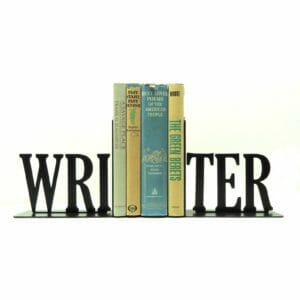
Photo credit: KnobCreekMetalArts on Etsy
18. Card catalog notecard set
Give your writer a better way to keep plot lines and story ideas organized with this card catalog notecard set.
It’s way cooler than Post-It notes and packs a nice dose of nostalgia.
19. Writing-themed cookbooks
A good book can suck you into its world, inspiring you to see, hear, feel and taste the things it describes.
Help your writer enjoy the “taste” bit with cookbooks inspired by literary classics. Options range from the A Feast of Ice & Fire (Game of Thrones) to Dinner with Mr. Darcy (Pride & Prejudice) to The Little House Cookbook (Little House on the Prairie).
20. Kindle Unlimited subscription
With Kindle Unlimited, your favorite reader can access over a million books, plus thousands of audiobooks, for a flat monthly fee.
If your writer already has a Kindle, this could be a good option!
21. Comfy pajamas
Every writer has days where showering and changing into “real” clothes takes a backseat to getting that draft finished. (For some of us, that’s most days.)
Why not give them a set of comfy pajamas that explains why they’re greeting the UPS driver disheveled at 3 in the afternoon? CafePress has lots of fun options.
22. Personalized embosser
Create custom stationery, give your party invitations an official flourish or ensure those who borrow your books remember to give them back.
A customized embosser allows you to stamp a raised seal with your name, address and more.
23. Edgar Allen Poe air freshener
Freshen up your car with some “Poe-pourri.” This Edgar Allen Poe air freshener is perfect for a self-proclaimed literary nerd.
Plus, according to reviews, it smells pretty good.
24. After-work glassware

Photo credit: Amazon
Write drunk, edit sober? Er…something like that.
This literary-themed shot glass set features the likes of Dorothy Parker, Oscar Wilde, and more.
25. A Starbucks or Amazon gift card
When you want to support a writer but you’re not sure what to get them, a gift card is a safe bet.
If you don’t know which books your writer has read already, give yourself a break — and make your writer happy at the same time — by giving them a gift-wrapped Amazon Gift Card. This one even says, “Happy reading” so they’ll know it’s for books.
You also can’t go wrong with credit to their favorite locally-owned cafe or a nationally-available shop like Starbucks.
26. Writer’s clock
Give your writer the gift of soft nudges and a bit of direction with this humorous writer’s clock where each hour is labeled with a task.
Now when your writer aimlessly stares at the clock, they’ll be reminded to either “review” or “edit” something, or know it’s time to “drink heavily” and “cry.”
27. The Writer’s Toolbox
Writers everywhere are familiar with the frustrations of writer’s block — that’s what makes this gift a perfect choice.
Help the writer in your life cure theirs with this toolbox designed specifically to nourish creativity. It includes 60 exercises, as well as games, prompts and more that are sure to get stories across the finish line.
The Writer Emergency Pack is another great gift for writers struggling with writer’s block.
28. A subscription to try different literary journals
Journal of the Month sends different print literary journals to subscribers on a regular basis. It’s an ideal gift for new writers eager to learn about the small magazine scene, emerging writers seeking a home for their writing, or experienced writers in need of fresh inspiration.
The price varies depending on how frequently your writer receives journals, and if they already subscribe to some, you can opt out of those.
29. A poster for keeping track of books they’ve read
Perfect for the voracious reader, the 100 Books Scratch-Off Poster lets your writer track progress as they read a variety of books ranging from classics to contemporary hits.
This is a fun challenge, a cool piece of art to hang in at home, and a #humblebrag, all in one.
30. Editing software
Give your writer a leg up and super clean copy with a grammar checker like Grammarly, ProWritingAid or AutoCrit.
They’ll keep your writer from making embarrassing grammar mistakes before submitting to magazines or literary agents, at a fraction of the price of a real-person editor.
31. Writing-themed coasters
We love coasters as gifts because they’re both creative and practical.
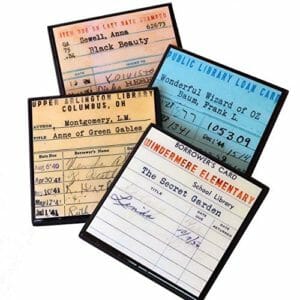
Photo credit: Cheltenham Road on Amazon
Add some sparkle to your writer’s desk or living room, while giving them a place to put their coffee or tea mug (or tumbler of whiskey) with any of these cool coaster sets:
-
- Typewriter coaster set
- Jane Austen books coaster set
- Library card coaster set
- Pun book coaster set
32. Office supply storage
Help them keep their pens, Post-Its, and other supplies in order with a fun storage solution like this library book desk organizer or this Hemingway typewriter pencil cup.
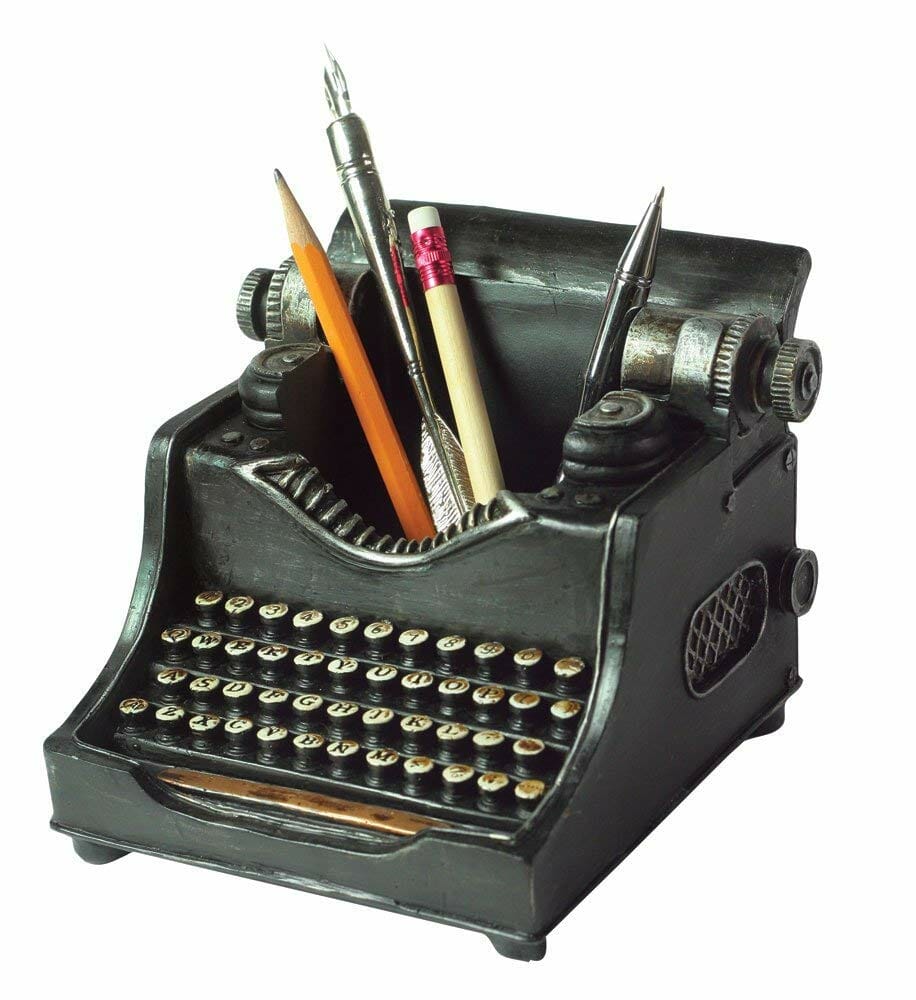
Photo credit: Amazon
33. A love book
If you love a writer, tell them how much you care in a language that will make them fall head over heels: a personalized Love Book. You can customize everything from the cover to the number of pages and choose from a wide selection of illustrations and text to make a book that’s unique to your love story.
The Write Life contributor Kelly Gurnett got one of these as a gift from her husband for their anniversary, and she wrote, “It was the best gift I think he’s ever given me.” Talk about a personal touch!
34. “Being a writer is easy” mug
Writing can be tough, stressful work. Make your writer laugh a little with this “Being a Writer Is Easy” mug.

Photo credit: IndigoPineMugs on Etsy
35. Book cover postcards
Sometimes you’ve gotta judge a book by its cover. Postcards from Penguin: One Hundred Book Covers in One Box pays tribute to the iconic Penguin paperback book covers and packs 100 of them into one (easy-to-wrap) box.
This gift also pays tribute to your recipient. Hopefully, they’ll be inspired to write 100 notes to loved ones or 100 very, very short stories.
36. Bananagrams
Writers tend to be word nerds who enjoy word games. But Scrabble feels…boring. So how about Bananagrams?
Bananagrams is an anagram game similar to Scrabble, but requires no pens, notepads or playing board. This makes it extremely easy to transport and play on-the-go.
Players race against each other to build a crossword grid off each others’ words. Perfect for a writer who loves a little competition!
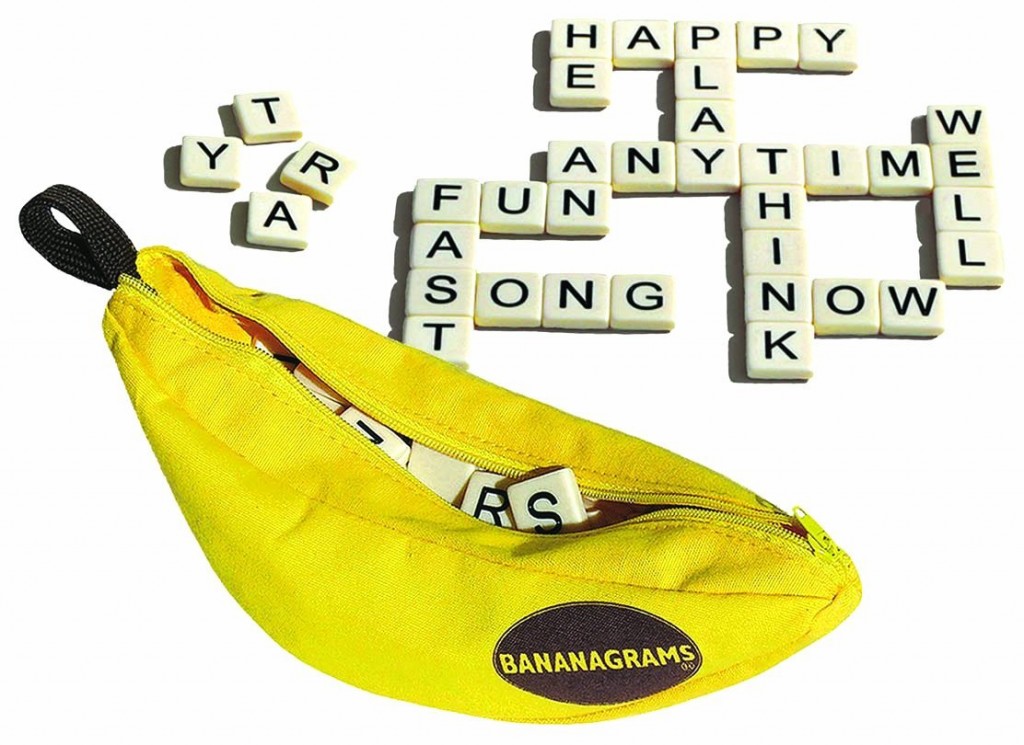
Image credit: Amazon
37. Reading is Sexy swag
For a great stocking stuffer that will make your writer smile, grab a Reading is Sexy bottle opener, mug, bumper sticker or button.
38. Literary poster
Pop Chart is known for their beautifully designed infographic posters, and their literary themed posters are just the gift for a writer with blank wall space to fill.
Check out The Cocktail Chart of Film and Literature Poster, which is available as a framed or unframed print. The company describes it as a “catalog of 49 drinks culled from great works of film and literature, depicting everything from Philip Marlowe’s Gin Gimlet to Fredo Corleone’s Banana Daiquiri.”
We also love Women of Letters: A Literary Fiction Scratch-Off Chart, which showcases the work of more than 50 female fiction writers.
39. Things that smell like books
Any true book lover savors all aspects of the reading experience — the feel of a page between their fingers, watching as a cover slowly becomes dog-eared, and, of course, the smell of books.
(If you don’t know what books smell like, then you’ve been found out, because you are clearly not a book lover.)
Give your beloved book nerd the smell of their favorite thing. If they love reading by candlelight, try these Library Set candles with scents like “antique books” and “ancient scrolls.” If they enjoy a little cologne now and then, consider The Library of Fragrance’s Paperback cologne, which the company describes as “sweet and just a touch musty, a lot like Pym’s world come to think of it.”
40. Book-lover pillow
“Just one more chapter…”
Does your word nerd say this all the time? Especially when they should be sleeping?
Then this book pillow is the perfect way to get comfy in bed.
41. High-tech pen
Why use a regular pen when you can have a cool techy one?
This LED pen is ideal for late-night writing in the dark, like when you wake up at 3 a.m. with a great idea. Or invest in this Livescribe Smartpen, which saves notes and audio recordings directly to your computer.
42. A bathtub book caddy

Photo credit: Amazon
Help your favorite writer relax at the end of a long day with a hot, luxurious bubble bath, some candles and a favorite read, thanks to this bathtub book caddy.
It’s even got a spot to hold a glass of wine!
43. Bookish jewelry
Let your writer keep their favorite book close to the heart (or wrist or ears) with these pieces of literary jewelry made from real pages of popular novels like Treasure Island, Pride & Prejudice and Moby Dick.
44. Literary wine
If you’ve got a wine-drinker on your hands, they’ll get a kick out of these Writer’s Block wines. You can choose from Pinot Noir, Cabernet Franc, Malbec and more.
45. Cocktails with a literary twist

Looking for the perfect drink pairing for your writer to take to book club or enjoy during quiet evening hours curled up with the classics? They’ll love Tequila Mockingbird: Cocktails With a Literary Twist.
This fun mixology book contains 65 literary-inspired drink recipes like The Pitcher of Dorian Grey Goose and Vermouth the Bell Tolls.
It’s also full of clever illustrations and commentary, bar snack recipes and drinking game ideas.
46. Funny tote bag
Is your writer a grammar geek?
Try this tote bag from CafePress that says, “I’m silently correcting your grammar.”
47. Write like a motherf%#$*er mug
Inspired by a Dear Sugar column written by Cheryl Strayed to a young, aspiring writer, The Rumpus Mug is an anthem for all writers, no matter what their specialty, genre or level of experience.
It’s a good reminder to go along with your morning coffee.
48. Scrabble magnets
Here’s an oldie but goodie: Scrabble magnetic refrigerator tiles. We like the vintage wood look, too.
If that special writer in your life is a huge Scrabble fan, you might also throw in the Scrabble tile mug or Scrabble board dish towel.
49. Out of print t-shirt, sweatshirt or tote bag
Some writer nerd clothing can be downright — well, nerdy. Out of Print tees, hoodies and totes, which feature the covers of iconic and often (you guessed it) out of print books, buck the norm and are actually fashionable.
Plus these gifts do good; for every item they sell, Out of Print donates a book to Books for Africa to help a community that doesn’t have easy access to books.
50. Literary insults chart
We love Uncommon Goods’ description of this product: “Relish the caustic creativity of this collection of zingers from great authors.”
The Literary Insults Chart includes some splashes of color, so it makes great wall art… and shows off your writer’s personality, too.
We updated the post so it’s more useful for our readers. Nicole Dieker, Kelly Gurnett, Jessica Lawlor, Meryl Williams and Betsy Mikel contributed to this article.
This post contains affiliate links. That means if you purchase through our links, you’re supporting The Write Life — and we thank you for that!
The post 50 Gifts for Writers That Are Way Better Than a Boring Old Notebook appeared first on The Write Life.
